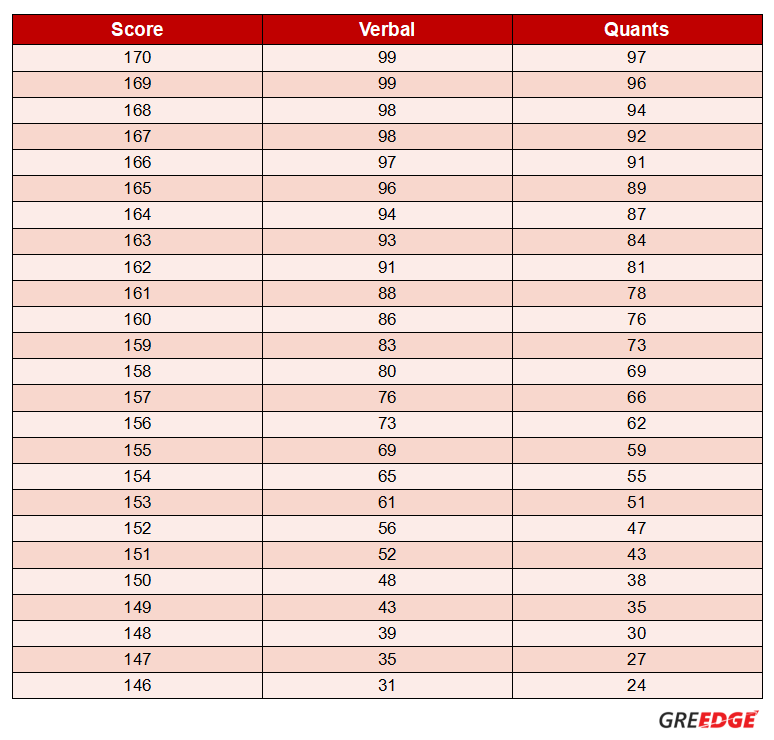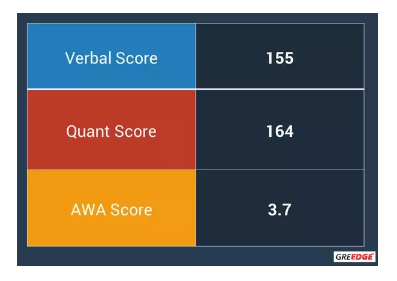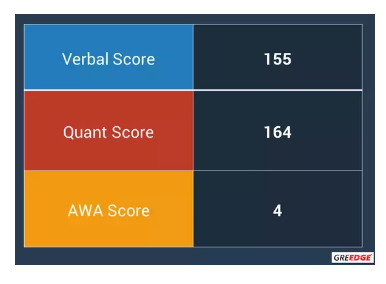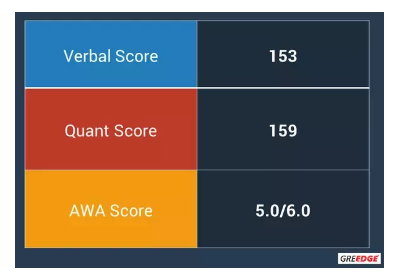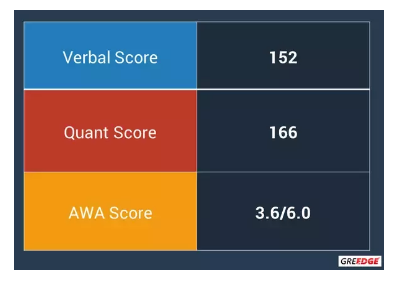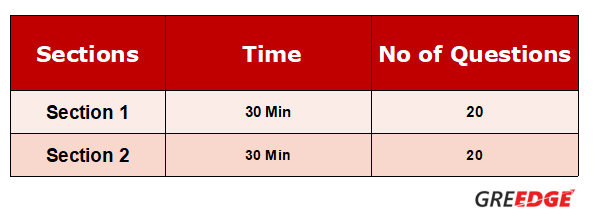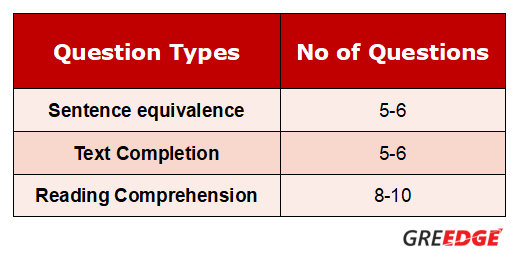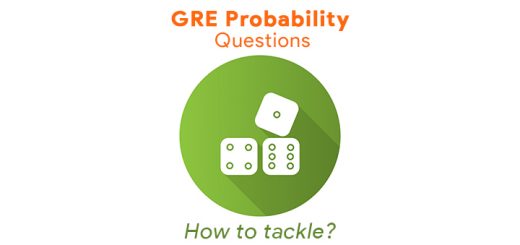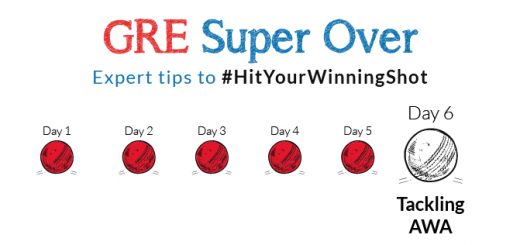Get High GRE Verbal Score: Common Mistakes to Avoid
Aliens. Fascinating, yet scary!
Anything that creeps into the unknown arena scares us. Thoughts like, “What do they look like?”, “If we ever meet them, are they going to kill us?”, “How would we fight them?” are common amongst scientists and civilians alike.
This is precisely how non-native speakers of English perceive the GRE Verbal section!
An incomplete understanding of the conceptual depths of the language is what makes students doubt their abilities to conquer this section.
The majority of GRE test takers come from an engineering or science background and naturally find the Quant section very easy to handle.
However, it’s the verbal reasoning section that has gained a notorious repute among test takers owing to its complicated RC passages, confusing text completion questions and difficult vocabulary.
Fear not, though. Going through this comprehensive guide will help take students from Ground 0 of GRE Verbal Preparation to being fully equipped to target a score of 160 and above!
What exactly is the GRE Verbal Section?
The Verbal Reasoning measure assesses your ability to logically understand and evaluate written material and synthesize information obtained from it, analyzing relationships among parts of sentences, words, and concepts.
About half of the Verbal section comprises questions from Reading Comprehension, requiring you to read passages and answer questions based on those. The other half requires you to read, interpret and complete existing sentences, groups of sentences or paragraphs. [source: ETS]
What is a good GRE Verbal score?
The truth is, the universities don’t look at your total GRE score, but your individual scores obtained in the GRE sections, Verbal, Quant, and even the AWA section – though it’s marked separately. Hence, how good your score is, depends on these factors:
- Your GRE Verbal score & Quants percentile scores
- The GRE score required for that program/university.
Let’s talk percentiles. Percentiles are a measure of what percentage of other GRE takers have a score lower than you. Hence, the higher your percentile, the better your chances!
ETS, the organization that conducts the GRE calculates percentiles separately for Verbal, Quant, and AWA.
Take a look at the individual score percentiles below (source: ETS)
Decoding the Data – What matters more for you?
Broadly speaking you need a higher score on the section more closely related to your field. STEM (Science, Technology, Engineering & Mathematics) Courses like Computer Science, in your case, place more emphasis on a higher Quants percentile whereas Ph.D. courses in thesis-based subjects often require a higher verbal score!
Noticed how the Verbal percentiles are higher than Quant percentiles throughout?
The difference between verbal and quants scores is especially more pronounced in countries such as India where more students score better in the Quants section owing to a higher priority given to developing mathematical skills coupled with the engineering background that most test-takers share! Thus, to get a higher Quants percentile, you’d need a higher Quants score than Verbal!
What is Good Percentile?
Roughly speaking, any score above the 75% mark is considered good, with a percentile above 85% considered excellent!
This means that a score of 157 or more in the Verbal Reasoning section is generally considered good.
You can get a pretty clear idea regarding the kind of score you must aim for by looking at the average score of the admitted applicants in some top universities in the US like:
-
Massachusetts Institute of Technology – Cambridge, MA
-
Stanford University – Stanford, CA
-
University of California – Berkeley, CA
-
Georgia Institute of Technology – Atlanta, GA
-
California Institute of Technology – Pasadena, CA
-
University of Illinois, Urbana-Champaign
-
Cornell University
-
Purdue University, West Lafayette
Download our eBOOK on “GRE Cutoff scores of Top 35 US Universities”
What is the sectional breakdown?
You have 1 min 30 seconds to attempt each question, on an average.
What is the question format?
There is no set pattern or sequence. Questions in different formats are intermingled rather than grouped separately. The number of questions in each format also varies.
For a rough idea, take a look at the question distribution pattern above – a reasonably accurate breakdown of GRE verbal reasoning questions as seen in previous exams.
Approximately 50%, or 10 out of 20 questions in each of the 2 sections are from Reading Comprehension passages, with Sentence Equivalence and Text Completion questions comprising the rest.
Note that some questions have only one correct answer, whereas others have multiple correct answers. In case of questions that have multiple correct answers, students are only awarded marks if they attempt all the correct options as the GRE does not have any part-marking system.
A fair idea of every question format:
Reading Comprehension
These questions are designed to test a wide range of abilities that are required in order to read and understand the kinds of prose commonly encountered in graduate school. Those abilities include:
- Understanding the meaning of individual words and sentences
- Understanding the meaning of paragraphs and larger bodies of text
- Distinguishing between minor and major points
- Summarizing a passage
- Drawing conclusions from the information provided
- Reasoning from incomplete data to infer missing information
- Understanding the structure of a text in terms of how the parts relate to one another
- Identifying the author’s assumptions and perspective
- Analyzing text and reaching conclusions about it
- Identifying the strengths and weaknesses of a position
- Developing and considering alternative explanations [source: ETS]
Download our eBOOK on “The Ultimate READING COMPREHENSION Hand Book“
Text Completion
Skilled readers do not simply absorb the information presented on the page; instead, they maintain a constant attitude of interpretation and evaluation, reasoning from what they have read so far to create a picture of the whole and revising that picture as they go.
Text Completion questions test this ability by omitting crucial words from short passages and asking the test taker to use the remaining information in the passage as a basis for selecting words or short phrases to fill the blanks and create a coherent, meaningful whole. [source: ETS]
Sentence Equivalence
Like Text Completion questions, Sentence Equivalence questions test the ability to reach a conclusion about how a passage should be completed on the basis of partial information, but to a greater extent, they focus on the meaning of the completed whole sentence.
Sentence Equivalence questions consist of a single sentence with just one blank, and they ask you to find two choices that lead to a complete, coherent sentence while producing sentences that mean the same thing. [source: ETS]
Common GRE Verbal Mistakes (and how to avoid them)
GRE RC
- Reading the passage completely before reading the questions
Reading an entire GRE passage before you even look at the questions is a mistake because the questions that follow a passage will not cover every aspect of the passage.
To focus on the correct parts of the passage, it’s better to treat the questions as a study guide for the passage. The subjects of the question set are a map of the essential things you should be looking for in the reading.
The MUST remember rules to ace this format-
- If the passage is long, the best strategy would be to skim it to get a hold of its core ideas. And then read the questions so you’d know which part of a particular para delivers the answer to it.
- If the passage is short enough, you can skip reading/skimming it altogether, jump straight to the questions and find answers to the same.
- Not actively engaging with the text
Reading and understanding a piece of text requires far more than a passive understanding of the words and sentences it contains; it requires active engagement with the text, asking questions, formulating and evaluating hypotheses and reflecting on the relationship of the particular passage to other passages and information. [source: ETS]
1. Think critically & analyze the text.
2. Look at the questions & try to understand the context in which they need to be answered.
3. Immerse yourself in the text. Become one with it.
GRE Text Completion
Do not merely try to consider each possible combination of answers; doing so will take too long and is open to error.
Instead, try to analyze the passage in the following way:
- Read through the passage to get an overall sense of it.
- Identify words or phrases that seem particularly significant, either because they emphasize the structure of the passage (words like although or moreover) or because they are central to understanding what the passage is about.
- Try to fill in the blanks with words or phrases that seem to complete the sentence, then see if similar words are offered among the answer choices.
- Do not assume that the first blank is the one that should be filled first; perhaps one of the other blanks is easier to fill first. Select your choice for that blank, and then see whether you can complete another blank. If none of the choices for the other blank seem to make sense, go back and reconsider your first selection.
- When you have made your selection for each blank, check to make sure the passage is logically, grammatically and stylistically coherent. [source: ETS]
GRE Sentence Equivalence
Do not simply look among the answer choices for two words that mean the same thing!
This can be misleading for two reasons:
1. The answer choices may contain pairs of words that mean the same thing but do not fit coherently into the sentence.
2. The pair of words that do constitute the correct answer may not mean exactly the same thing, since all that matters is that the resultant sentences mean the same thing.
- Read the sentence to get an overall sense of it.
- Identify words or phrases that seem particularly significant, either because they emphasize the structure of the sentence (words like although or moreover) or because they are central to understanding what the sentence is about.
- Try to fill in the blank with a word that seems appropriate to you and then see if two similar words are offered among the answer choices.
If you find some word that is similar to what you are expecting but cannot find a second one, do not become fixated on your interpretation; instead, see whether there are other words among the answer choices that can be used to fill the blank coherently. - When you have selected your pair of answer choices, check to make sure that each one produces a sentence that is logically, grammatically and stylistically coherent, and that the two sentences mean the same thing. [source: ETS]
How to prepare for GRE Verbal
Before you start preparing, you must be in the know of your exact strengths and weaknesses. This will give you a mental map of conquering GRE Verbal section in a way that is customized to best suit your needs.
To see what GRE Verbal score you’d achieve if you took it today, try the AdmitEDGE Score Predictor Now!
Now that you know what you need to work on, let’s take a look at just what you need to do to win over this section!
Remember that you won’t become a pro at this section overnight. Achieving a high score in this section requires continuous efforts.
Follow this plan to ensure you leave no stone unturned in prepping for this section:
Use a dictionary intelligently
Dictionary is just a directory of words if the context isn’t learned and remembered.
Don’t just find some new words every day and learn their meanings, only to forget the very next day.
Look at their sentence examples to learn the context in which those words are used. You won’t just remember
the word but also the various ways in which it can be spoken & written.
E.g., How to learn the word ‘philanthropist’-
1. Look for its meaning in the dictionary.
2. Read its example right below the given definition, out loud.
3. Read more sentence-examples.
4. Have an inner monologue of its possible use-cases.
Set a goal of learning 20 new words.
Download our eBOOK on “High Priority GRE Word List”
Read. Read A LOT!
Read everything you can possibly get your hands on – journals, magazines, newspapers, books, novels, comics & blogs.
The more you read:
1. The more you’ll get to know the difference between good writing & bad writing
2. The better your vocabulary suit will get without you having to cram words separately
3. You’ll automatically become knowledgeable in the context in which words are used & that will become a part of your subconscious thought process.
Don’t just read, read ACTIVELY!
Get immersed in the text you read. Actively participate in an internal discussion with your own self about what the author might really be wanting to convey. Rectify it, think about it, make it better in your head.
Perceive the text. Weigh it. Consider it. Improve it. Make it your own!
This will better your critical thinking ability.
Have a constant dialogue with yourself in English. Attack and defend yourself on your arguments from an unbiased perspective. This will bring a smooth flow to your thoughts, and you’ll learn how to think and express in English exactly how you do in your native language.
Learn by doing what you love
Yes, learn English by watching documentaries, interviews, presentations, movies, TV series.

(Don’t look at me like that. Wait….)
These are the perfect resources to become fluent in the language, know the correct pronunciations of words and understand finer nuances like the use of metaphors, idioms, and interjections – all of which are important constituents of assessing the tone and context of a passage,
Knowing these will help immensely with making you comfortable with the language!
Use Twitter
As opposed to keeping a journal or starting a blog, the beauty of Twitter is that it provides you an ability to express yourself, but with a character limit.
Thus, you have no option but to come up with words that express more. This will heighten your vocabulary both in terms of quantity as well as its quality.
Use it to comment on the news, blogs you read, share your preparation journey or just some creative thoughts of your own.
Befriend time:
We have already seen that the GRE is a test of your time-management skills requiring you to solve each question in 90 seconds or even less. Learn how to solve more of the easy questions as quickly as possible (without compromising on accuracy, of course) so that you have more time to devote to the ones you find difficult and time-taking.
Now this is a skill you can only gain by practicing more GRE style test papers. The more you practice, the better your time-management will get. Don’t spend too much time pondering over a single question – flag it and move on to the next! If you have time, you can always come back to it later!
Check out our eBOOK on “Crack GRE Verbal – Best Tips“
Just don’t rush the process of learning how to score your potential highest. It’s a journey where you’ll find yourself improving consistently over time and with practice, but it will not happen overnight.
It takes quite some time to learn a language, then to be able to think and speak fluently in it.
Just remember it’s only a language. How hard could it possibly be? Harder than the language you already speak? I bet not!
You’ll only succeed when a failure is no longer a contending option for you. Go full throttle with your GRE preparation. All the best!


